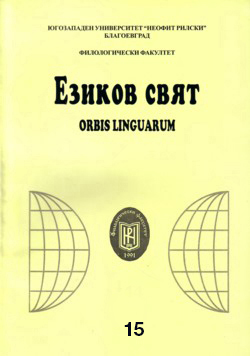
We kindly inform you that, as long as the subject affiliation of our 300.000+ articles is in progress, you might get unsufficient or no results on your third level or second level search. In this case, please broaden your search criteria.

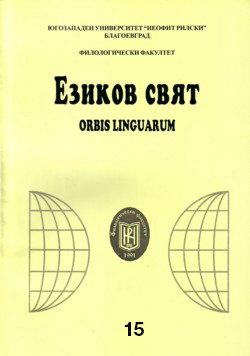
This article tackles the issues of concern while translating for the Bulgarian-Revival-era audience and focuses on the narrator and the didactic nature of his presence in Ivan Bogorov’s version of Robinson Crusoe. Being a product of its time, the translation is clearly instructional. The narrator becomes visible in order to guide children’s reading, make explicit judgements on actions and characters and demonstrate moral and immoral behavior by leaving side comments throughout the whole story.
More...
The text interprets the communicative strategy of the newspaper „Gaida“ (1863–1867) by P. R. Slaveikov. Each of the articles in this newspaper served as a „repeater“ of certain collective knowledge – an assessment of facts, personalities, events. The communicative strategy of the newspaper „Gaida“ is realized through the conscious withdrawal of the author and his hiding behind the voice of anonymous function. The way of creating one-voice space through the suspensory reference codes in the collective memory is monitored. The purpose is to show the social vice and to transmit it to the authority of the punishment – the community.
More...
In this artistic work of Leo Tolstoy the war is presented as a huge evil. It is considered in different aspects. It is combatting, but also a sacrifice and violence, it is a huge and unpredictable conflict. Tolstoy's viewpoint of the war, of its meaning for the Russian people is revealed.
More...
The current report aim is to present how Galin Nikiforov novels “Clowns’ house”, “The photographer: Obscura reperta” and “The fox” interpret death (Immortal Death) through mythological and scientific understanding. This view situates the novels on the border between reality and imagination. The author traces the subject of death and immortality through Egyptian, Japanese, African and Chinese mythology to the recent situation to show how human thought and spirituality have found expresion in various religious cults. Research have sought to prove the possibility of the body to reproduce its longevity and have evoked in better knowing the human physiology. The quest to find the “golden pill” of immortality is thus clearly defined in “The fox” novel.
More...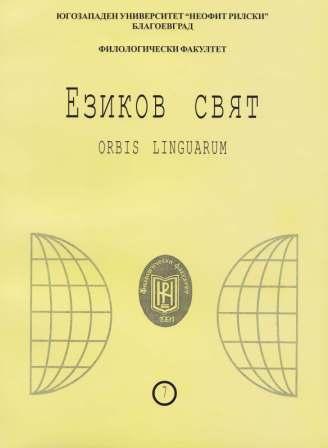
The plot “Phryne” is a product of Ancient Greece. It is formed as a social myth about 390–330 BC. The mythological storyline “Phryne” is interpreted in the poem under the same name by Pencho Slaveikov “Phryne” (1892). Pencho Slaveikov's modernist idea of Beauty's Apotheosis is in harmony with the Hellenic notion of beauty – Kalokagathia. For the interpretation of the concept of Kalokagathia – Losev and Plato. After the Pencho-Slaveykov's “Phryne” in Bulgarian literature, the heroine Phryne appeared in Peter Slavinski's eponymous play (1935) and was also found in the play by Stefan Tsanev “Other Death of Jeanne d'Arc” (1989–1990), as well as in the novel “Martina” by Victor Paskov (1986).
More...
The article presents the initial results from the critical survey oriented towards the Bulgarian post-communist literature about recent past. The main issue of the analysis is the problem about a special kind of social silence in Bulgarian totalitarian society presented in the novels as a means of resistance. In Bulgarian People's Republic, the public areas of life were dominated by the ideological clichés of the Bulgarian communist party, but behind that, there was no more than silence about real problems. In the literature, this is presented as a strategy of surviving that has helped people to get over the ruptures between their personal ethical values and the officially imposed norms.
More...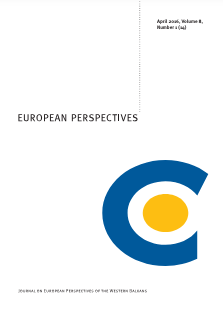
This contribution presents, analyzes and comments one of the best recent European novels on diplomacy Mission London by Alek Popov. The author sets in the fable diplomatic life at the Bulgarian Embassy in London in the mid-nineties of the previous century. In his interesting, satirical and dynamic novel he merges aspects of comedy, novel and criminal story, and offers a representative picture of diplomatic life in the receiving state. The novel includes the majority of most important diplomatic elements like: the arrival and beginning of the work of the new Ambassador, daily working rhythm, habits and psychology of diplomatic work, relations between diplomats and administrative-technical staff as well as with colleagues in the foreign ministry at home, international conferences, contacts with diaspora, and intrigues and connections with politicians at home. Hence we claim in this paper that the book presents a mini handbook of diplomatic practice. The novel is important, comprehensive and substantial contribution to understanding diplomacy, diplomats and their work, although some parts of the text contain certain exaggerations for the sake of the attractive style.
More...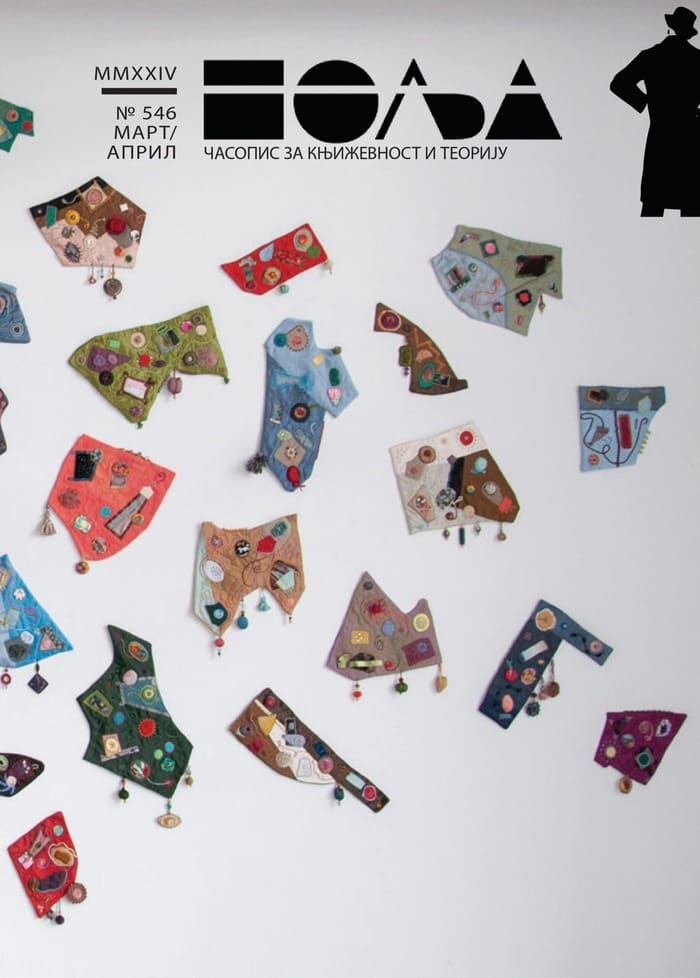



Review of: Brižit Žiro: Živeti brzo, preveo sa francuskog Bojan Savić Ostojić, Akademska knjiga, Novi Sad, 2023)
More...
Opće je mišljenje da je Franz Kafka svojim romanom Proces inaugurirao represivne režime totalitarnih ideologija fašizma i komunizma kojima će biti obilježeno 20. stoljeće. Stoga se čini gotovo nevjerojatnim da je pisac ovaj roman bio zamislio kao humoristično djelo. Čitajući fragmente teksta u krugu bliskih prijatelja najviše je smijeha izazivala činjenica da je Jozef K. bez konkretnog povoda jednog jutra bio uhapšen. Iako nikad nije saznao što piše u optužnici osuđen je na smrtnu kaznu i zaklan »kao pas« u jednom kamenolomu.
More...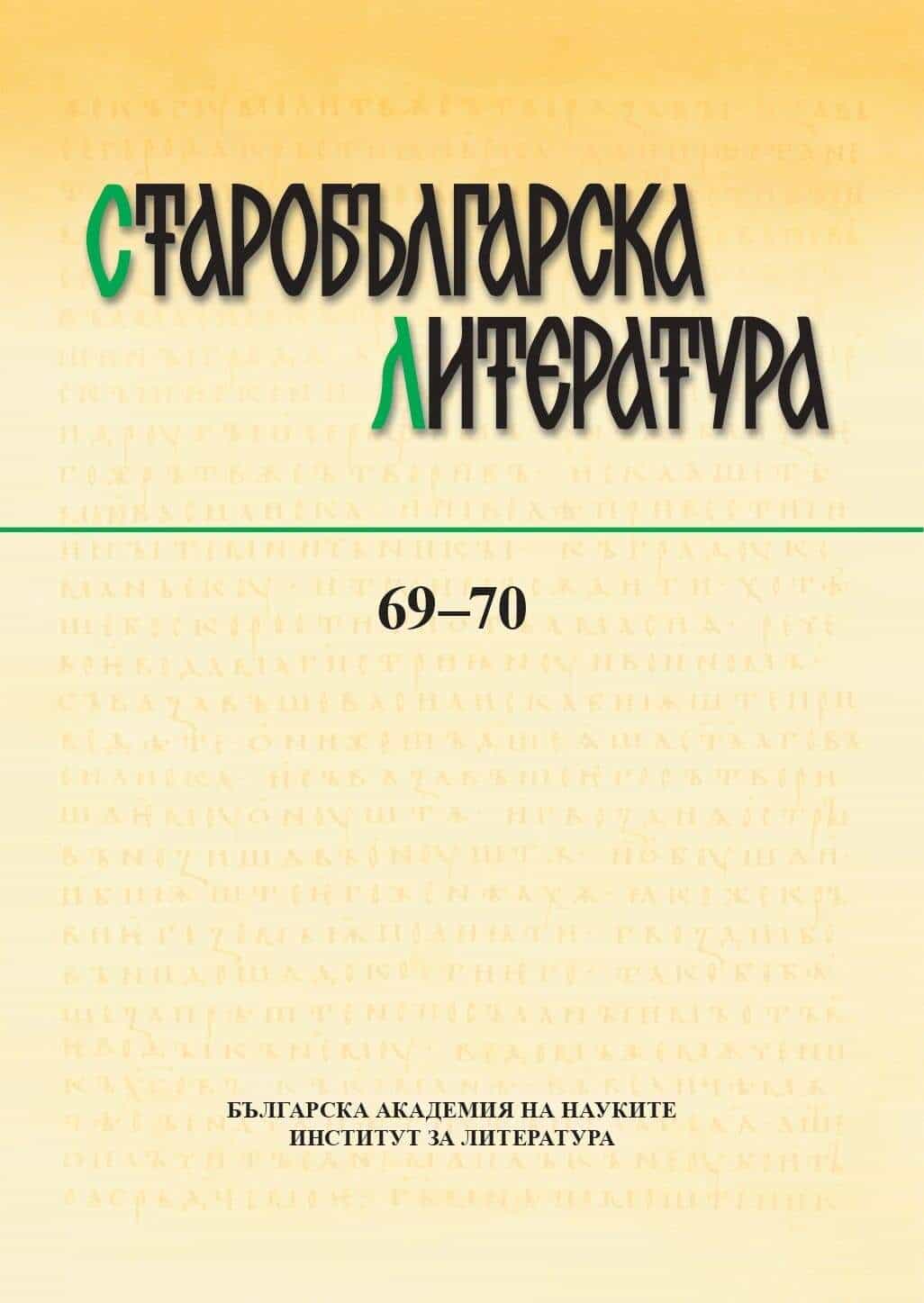
This article examines the activities of Professor Boyan Penev of Sofia University and Associate Professor Józef Gołąbek of the University of Warsaw, two scholars dedicated to promoting Bulgarian literature in Poland in the 1920s and 1930s. The article begins by presenting Boyan Penev’s lectures on Bulgarian literature, delivered in the 1923/24 academic year at the universities of Kraków, Warsaw, and Lwów (then in Poland) and published posthumously: in Bulgarian, Balgarska literatura. Kratak istoricheski ocherk (1930), and in Polish, Literatura bułgarskа do roku 1878. Opracował i przygotował do druku Józef Gołąbek (Warszawa–Wilno, 1938). A comparative study is conducted between the manuscript version of the lectures, and their Bulgarian and Polish editions. The information provided about the scholarly activities and publications of the Polish scholar of Slavic and Bulgarian Studies, Józef Gołąbek, sheds additional light on the view that Literatura bułgarskа do roku 1878 (1938) was the only work from the first half of the twentieth century that gave foreigners a comprehensive idea of Bulgaria’s intellectual development from the origins of Bulgarian literature to the Liberation. In their oral version, Penev’s lectures to a Polish academic audience fulfilled the task set by the Bulgarian scholar. However, in print, it was Gołąbek’s essay Literatura bułgarska, published in Wielka literatura powszechna (1933), that first introduced (Old) Bulgarian literature to a Polish readership. Gołąbek’s concept of Old Bulgarian literature is analyzed both through this essay and his editorial participation in the publication of the Polish edition of Penev’s lectures (1938), thereby also tracing Penev’s influence on Gołąbek. The study presented in this article draws on the above-mentioned publications (Penev 1930; Gołąbek 1933; Penew 1938) as well as on archival materials from Boyan Penev’s personal collection (Scientific Archive of the Bulgarian Academy of Sciences, f. 37k, op. 1), containing the preparatory texts for his lectures and Gołąbek’s letters to him. They clearly show the professional collaboration of the two scholars, complement their biographies and, last but not least, reveal unknown pages of Bulgarian literary history in the interwar decades of the twentieth century.
More...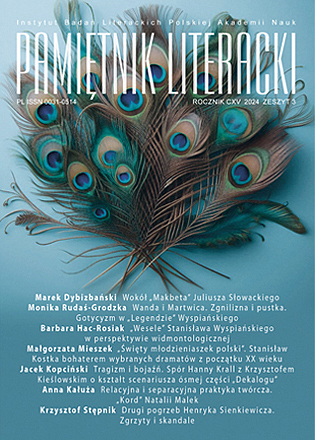
Despite the wide interest in Zuzanna Ginczanka’s poetry, what determines the exceptionality of her verses—their language—still remains the least researched issue. The poet consistently broadens and exceeds the limits of the Polish language, forming neologisms and exploiting the potential of grammar and text structure. The author of the paper insights into the mode in which Ginczanka gets accustomed with uncommon grammar solutions, namely comparative instrumental of manner, making out of it her regular stylistic trope. In the first part of the paper, Piątkowska analyses selected poems, identifying the artistic effects produced by comparisons based on instrumental. She devotes special attention to the specific textual meanings and suggests a pragmatic approach to the problem in question.
More...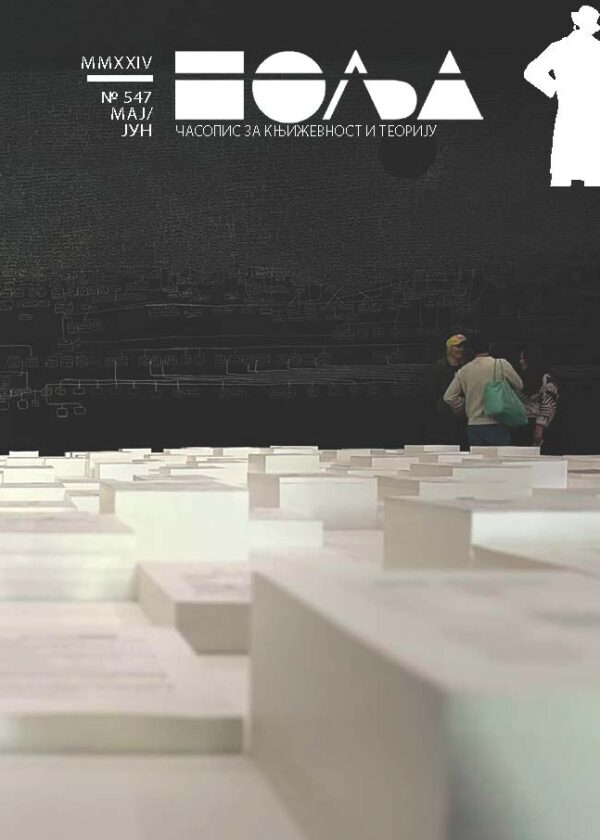
Review of: Keti Aker: Krv i suze u srednjoj školi, preveo s engleskog Flavio Rigonat, LOM, Beograd, 2024
More...
Review of: Sesilije Enger: Minut ćutanja, prevela s norveškog Bojana Maksimović, Albatros plus, Beograd, 2024.
More...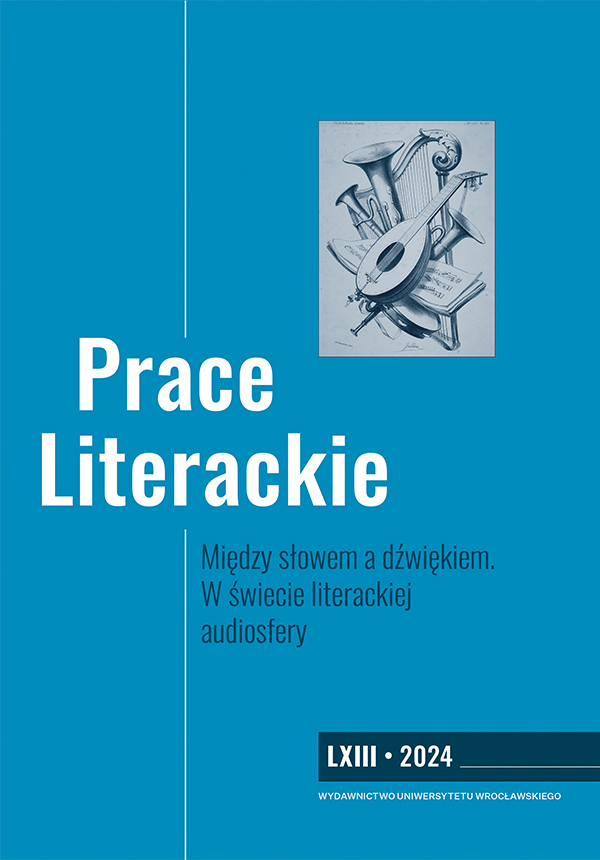
Olaf Krysowski’s book Mickiewicz i romantyczna filozofia języka [Mickiewicz and the Romantic Philosophy of Language] discusses various linguistic concepts that inspired Mickiewicz in his early works. The author uses creative linguis-tic ideas to interpret selected literary works of the poet, and also points out their Slavophilic determinants, proving that speech functions are the source of Romantic cognition and the mytholinguistic image of the Slavs.
More...
This paper aims to study gender identities in the novel Terazije by Boško Tokin, which is considered by some literary critics to be the first modern novel of the Serbian literature. In his story of interwar Belgrade, Tokin depicts a world in which traditional morality and customs have been replaced by the amorality of the new age, in which each individual is left to themselves and their conscience, and there are no social penalties for great sinners. At the beginning of the work, we gave an overview of the reception of this novel, starting from the first reviews in the contemporary press, through lack of interest for the most of the twentieth century, to the renewed interest in the late twentieth and early twenty-first centuries. In the part of the work dedicated to the analysis of the novel, we first reflected on the formation of the character of the modern woman, shown through the marriage of Đorđe and Olga, but also her subsequent moral downfall. After that, we analyzed Đorđe’s relationship with the maid Zuza and interpreted the space of Palilula as an expressionist locus amoenis in which a man gains freedom from a woman. Olivera Jovićević, wife of MP Sima, as the character of a sexually frustrated woman, offered another look at a woman of the new age, who will still experience her most complete incarnation in Zora Bogosavljević, whose relationship with the bon vivant Strahinja represents an apology of free love. This, however, stands in sharp contrast to Zora’s tragic ending, which shows a split in Tokin’s approach to this character. The final part of the work is dedicated to cross-dresser Rista/Rikica, one of the earliest characters of homosexuals in the Serbian literature. These characters depict Toxin’s complex and often contradictory attitude towards issues of gender, sexuality, and morality and attract the modern reader with their modernity.
More...
Review of: Кsenija Aykut, Aşk Şiirleri Antolojisi / Antologija ljubavne poezije,Kırklareli, RumeliYA, 2023, 214 стр.
More...